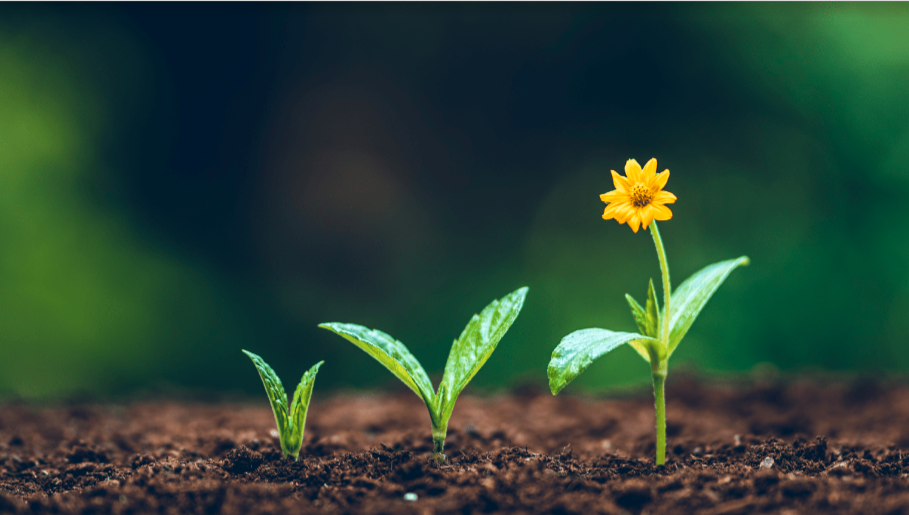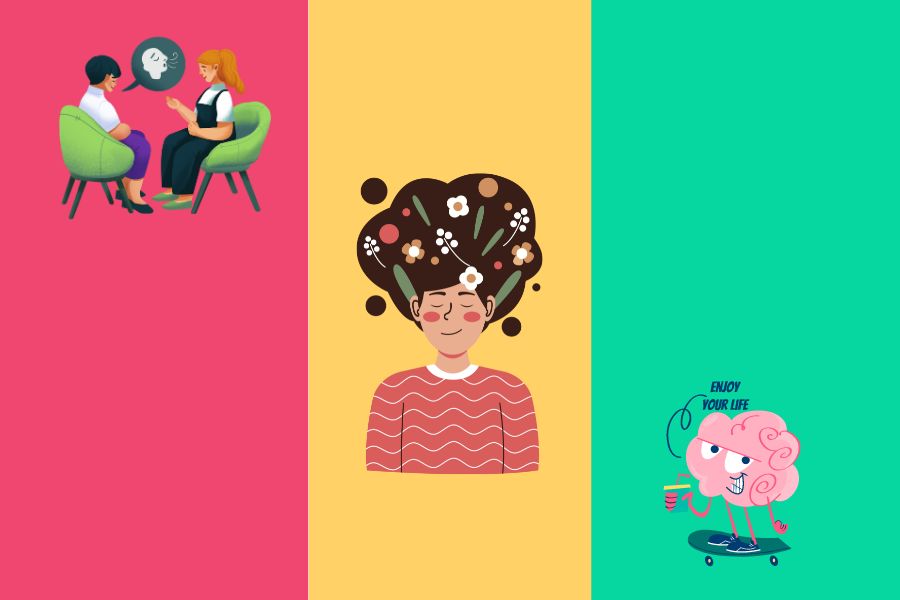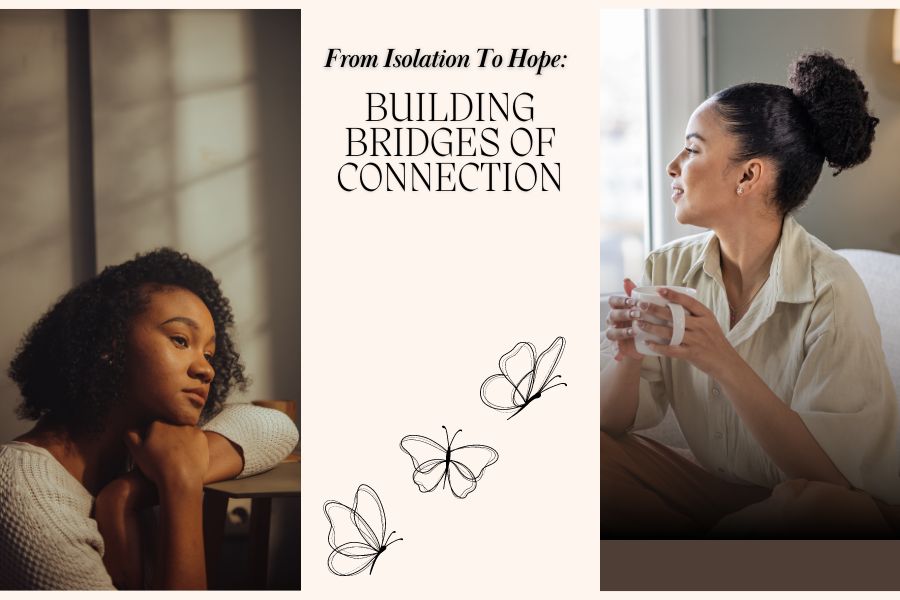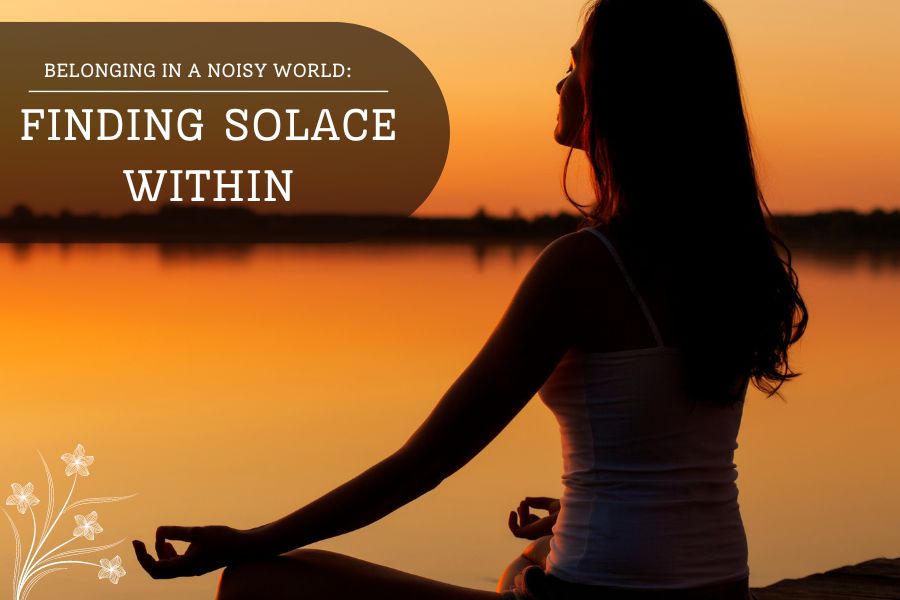“Will I say the correct thing?” “Will they accept my actions?” “I wish I could fit in with my peers.” Can you recall a time when these thoughts echoed in your mind? For many of us, these lines are not just words but a reflection of our own experiences. At some point, we all felt like a red rose in a bed of white roses.
Belongingness and loneliness are two terms that are often used interchangeably. The push of not belonging takes us to the dungeon of loneliness. Belongingness is as important as a roof over our heads for survival. Belongingness can be described as a more subjective and dynamic feeling that one is an essential part of the ecosystem, which consists of one’s family, friends and larger community.
While the feeling of not belonging is associated with earlier death and is the root cause of several mental disorders, the sense of belonging has the potential to lead us towards a longer, healthier and more fulfilling life.
Human beings are social-the primary factor that separates us from animals. Naturally, the need to feel socially connected is like oxygen for this social being. However, in the modern world, there is a crisis of belonging. People are trying harder and harder to “fit in” and “find their vibe.”
But the need is more than just social. According to reports, it is also biological and sometimes even cultural. The desire to connect with one’s culture and environment is rooted deeply within all of us. Failure to do so causes tremendous distress.
This trend is especially famous among youngsters who have their own stereotypes to be followed. Abraham Maslow, the great humanist, placed “love and belonging” at the top of his infamous hierarchy of needs. That is how important it is.
Belongingness among school children is associated with higher academic success, peer bonding and emotional health. Adults who feel more connected with their colleagues feel more motivated to go to work and perform better.
The conscious urge to be accepted by a group is evolutionary. Human beings once existed in a hunter-gatherer society, where individuals moved in groups in search of food. Being a part of a group also increases a sense of social security. Being a member of large groups is more cultural for most Asian societies, which are collectivistic. Western culture is more individualistic and seemingly affected by a loneliness pandemic.
The COVID-19 pandemic has significantly made the loneliness epidemic worse. According to social psychologist Geoff Cohen, one in five Americans suffer from chronic loneliness. Youngsters especially feel more disconnected and vulnerable at a time when they need to be a part of a group, which is higher than ever. These factors have contributed significantly to this epidemic of belongingness that we are facing today.
There is an acute shortage of sensitive people who can work with others, understand their own needs, and be thoughtful of others and their sufferings. And this stability can only be achieved by being aware of one’s own soul and nourishing it with the pure seeds of love and affection.
But have you ever thought about the root cause which might have brought about this grave situation? A few of those causes are mentioned below:
- This is not how we were once: One of the primary reasons behind this grave situation could be the stark contrast between our evolutionary wiring and modern societal structures. Our brains are still hardwired to function as they did in the hunter-gatherer era, where we lived in small, tight-knit communities. However, today’s world is vastly different, with more extensive social circles, constant exposure to strangers, and a sense of disconnection from our roots.
- Evolutionary Mismatch: Belongingness problems in school might reflect this evolutionary mismatch. Our ancestors didn’t have to navigate the complexities of peer dynamics or the pressures of fitting in with hundreds of classmates. Instead, they lived in small tribes where everyone knew each other intimately. This disconnect between our evolutionary past and present-day realities could contribute significantly to the belongingness epidemic we face.
- Constant exposure to strangers: Moreover, increased child exposure to more people, including strangers, might contribute to lower belongingness. In the past, children grew up surrounded by a familiar circle of family and community members. Today, they encounter a vast array of unfamiliar faces daily, from classmates to teachers to strangers on the street. This constant exposure to unfamiliar people can create a sense of disconnection and hinder the development of deep, meaningful bonds.
- Social anxiety disorder: SAD could also play a role in this epidemic. The fear of being judged or rejected by others can make it challenging to form connections and foster a sense of belonging. Individuals with social anxiety may struggle to initiate conversations, participate in group activities, or express themselves authentically, leading to feelings of isolation and loneliness.
- Lower Self-Esteem: Research was conducted in which students were asked to join different groups of their choice for activities. Those with High self-esteem found it easier to join groups and were more proactive compared to those who were low on the self-esteem scale.
- Increased Mental Health Problems: Furthermore, the rise in mental health problems, such as depression and anxiety, could exacerbate the crisis. These conditions can create a vicious cycle, where feeling disconnected from others motivates mental health issues, which in turn makes it more difficult to establish meaningful connections.
- The end goal is Happiness and Satisfaction: Researchers claim that humans feel some level of satisfaction and happiness upon a group’s acceptance, which drives individuals.
Despite these challenges, the human desire to connect remains strong. We are social beings, and our need for belongingness is deeply rooted in our evolutionary history. However, navigating this need in the modern world requires a conscious effort to build and maintain meaningful relationships, foster inclusive communities, and prioritise mental well-being.
It’s frightening how much not feeling like you belong can hurt with your head and heart. I remember back in middle school feeling so left out and alone at times. Like I was the only kid who didn’t get the inside jokes or have the cool clothes, it really affected my self-esteem and made me anxious about going to school some days.
Nowadays, With social media showing off everyone’s highlight reel 24/7, it’s easy to feel like you’re the only one not living it up with a big friend group. Add in all the pressures to look and act a certain way, and it’s a recipe for feeling isolated and disconnected.
Humans are hardwired to crave that sense of community and acceptance from others. It’s baked into our DNA from when our ancestors lived in tiny tribes where everyone had each other’s backs. So when we lack that intimacy and belonging, it’s like our brains go a little haywire. No wonder loneliness and alienation are linked to so many health issues—our bodies really don’t know how to handle it.
The reality is nobody is looking to exclude anyone on purpose most of the time. We’ve all felt like oddballs at some point. By showing more compassion and making spaces for people to be themselves, we can start chipping away at this belongingness epidemic one interaction at a time. It’s what will make this world a little bit lighter for everyone.
Identifying the critical factor making you vulnerable is crucial in resolving that issue. Acceptance is the first step towards healing. It is important to remember that by understanding the root causes of this belongingness epidemic, we can work towards creating a society where everyone feels accepted, valued, and connected. It is a collective responsibility to cultivate empathy, compassion, and a sense of community, ensuring that no one feels like a red rose in a bed of white roses.
Like the COVID-19 pandemic, the loneliness pandemic can be fought with the right tools, and we have all of them at Antaha. Antaha understands the importance of compassion and companionship and has all the resources you need. Start your journey of wellness with us today! Remember that you are not alone in this challenging journey. If you feel like a victim of this phenomenon, then reach out to us. Millions of people are suffering; we are here to help you constantly.
Some key takeaways:
- Belongingness problems in school might reflect an evolutionary mismatch;
- Child exposure to more people, including strangers, might contribute to lower belongingness;
- social anxiety disorder, and increased mental health problems;
- there is a higher desire to connect among young people
- Belongingness and loneliness are often used interchangeably.
- The urge to be accepted by a group is evolutionary
- Identifying the critical factor making you vulnerable is crucial in resolving that issue.
















